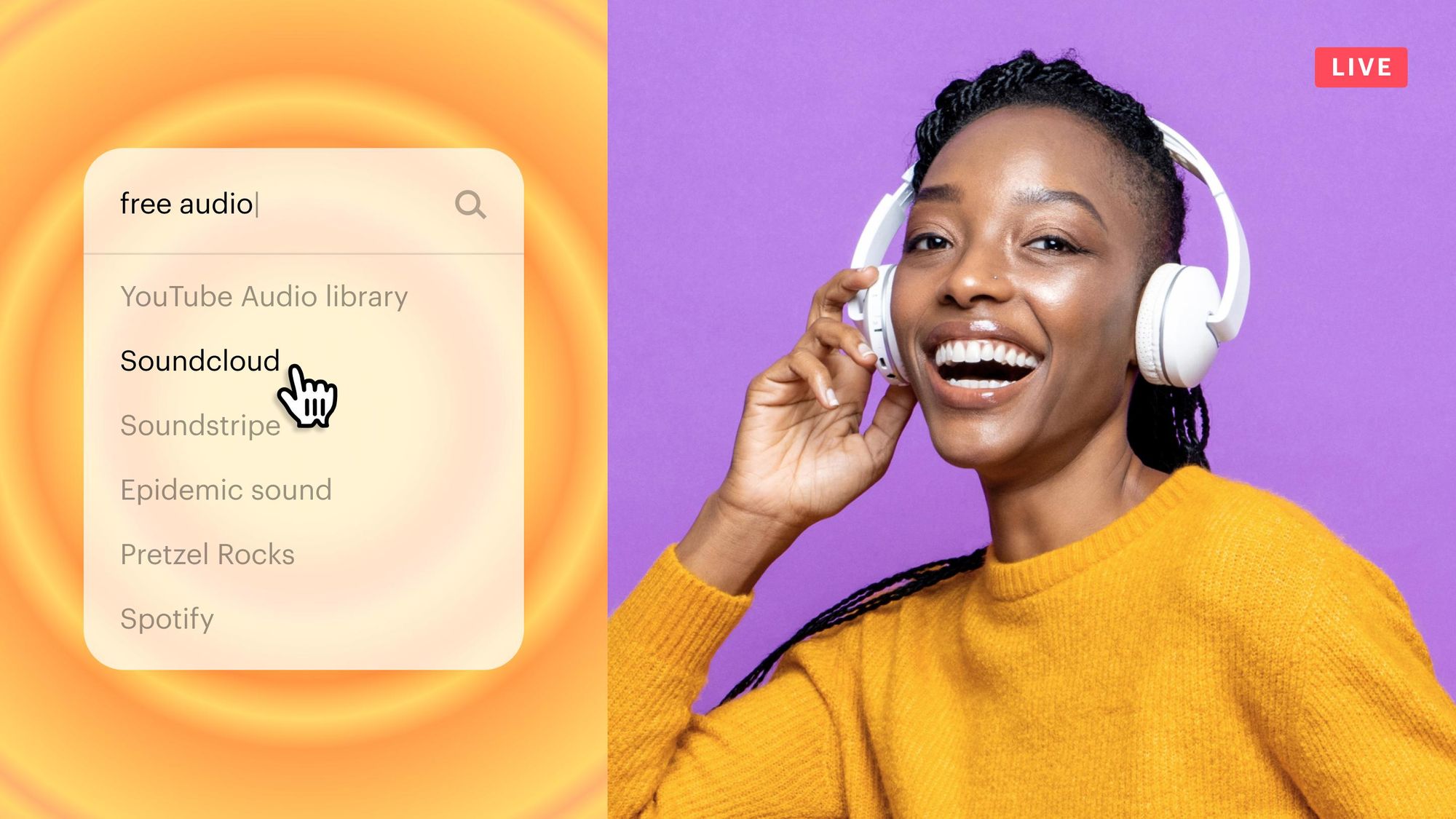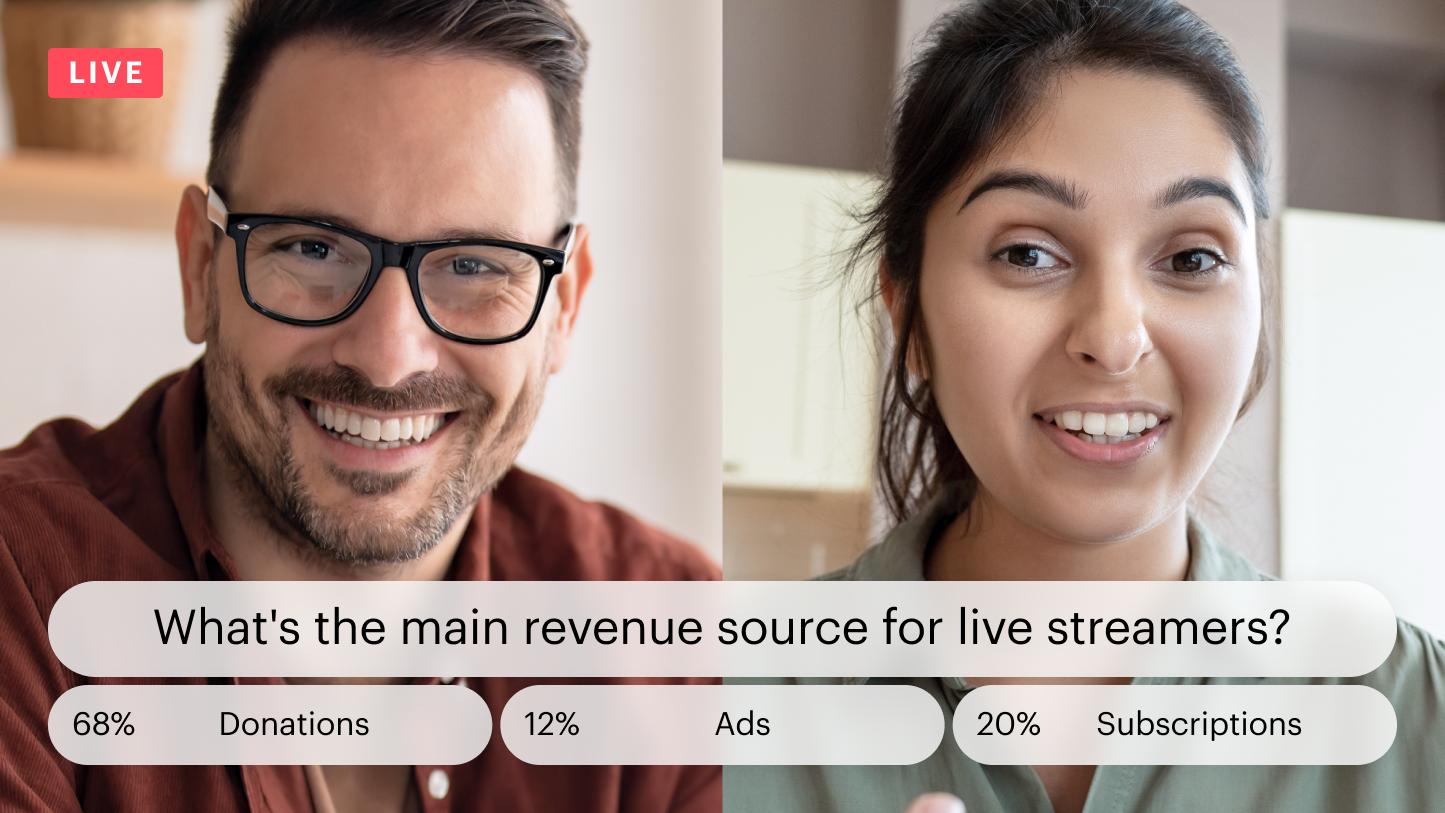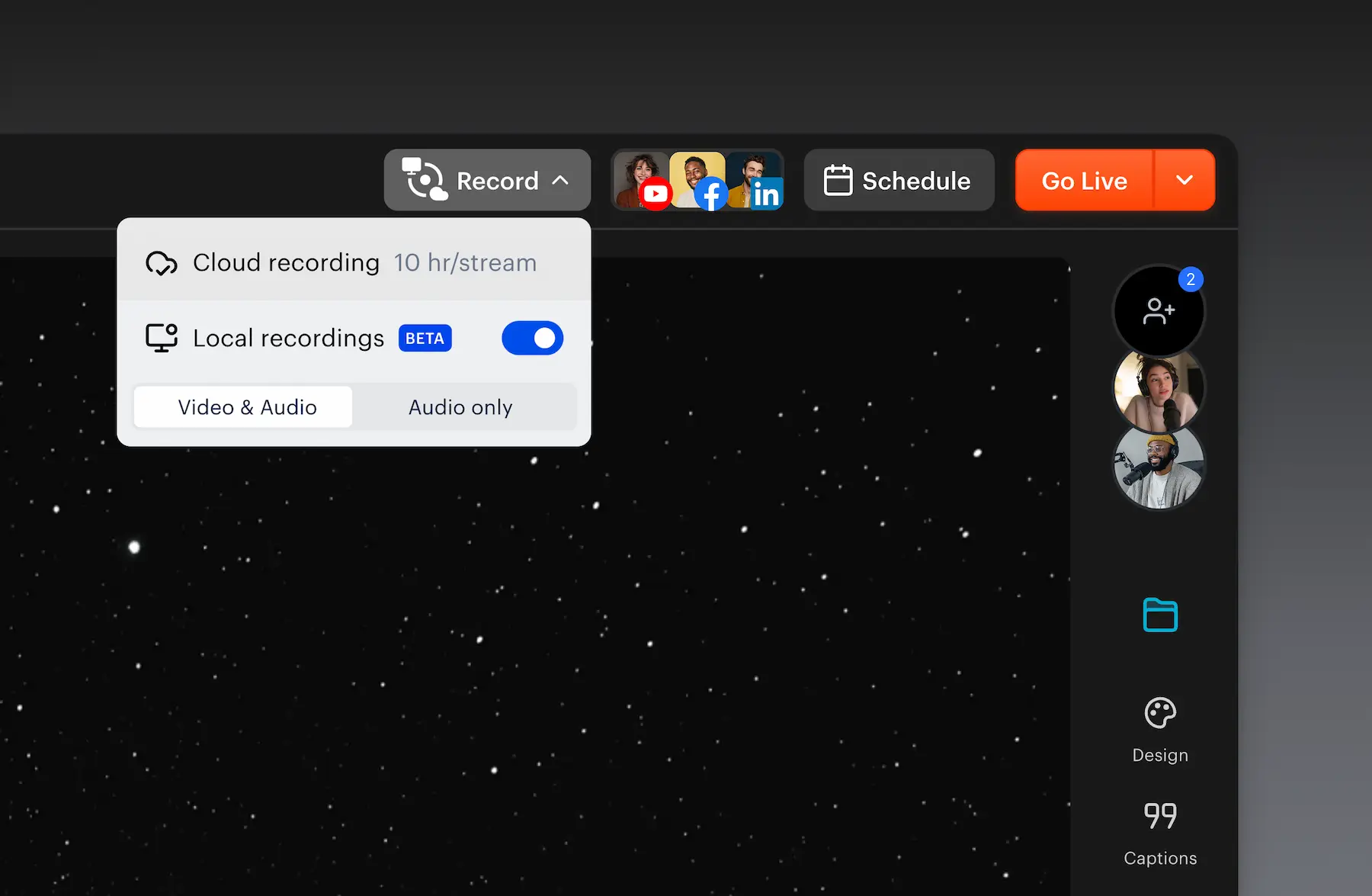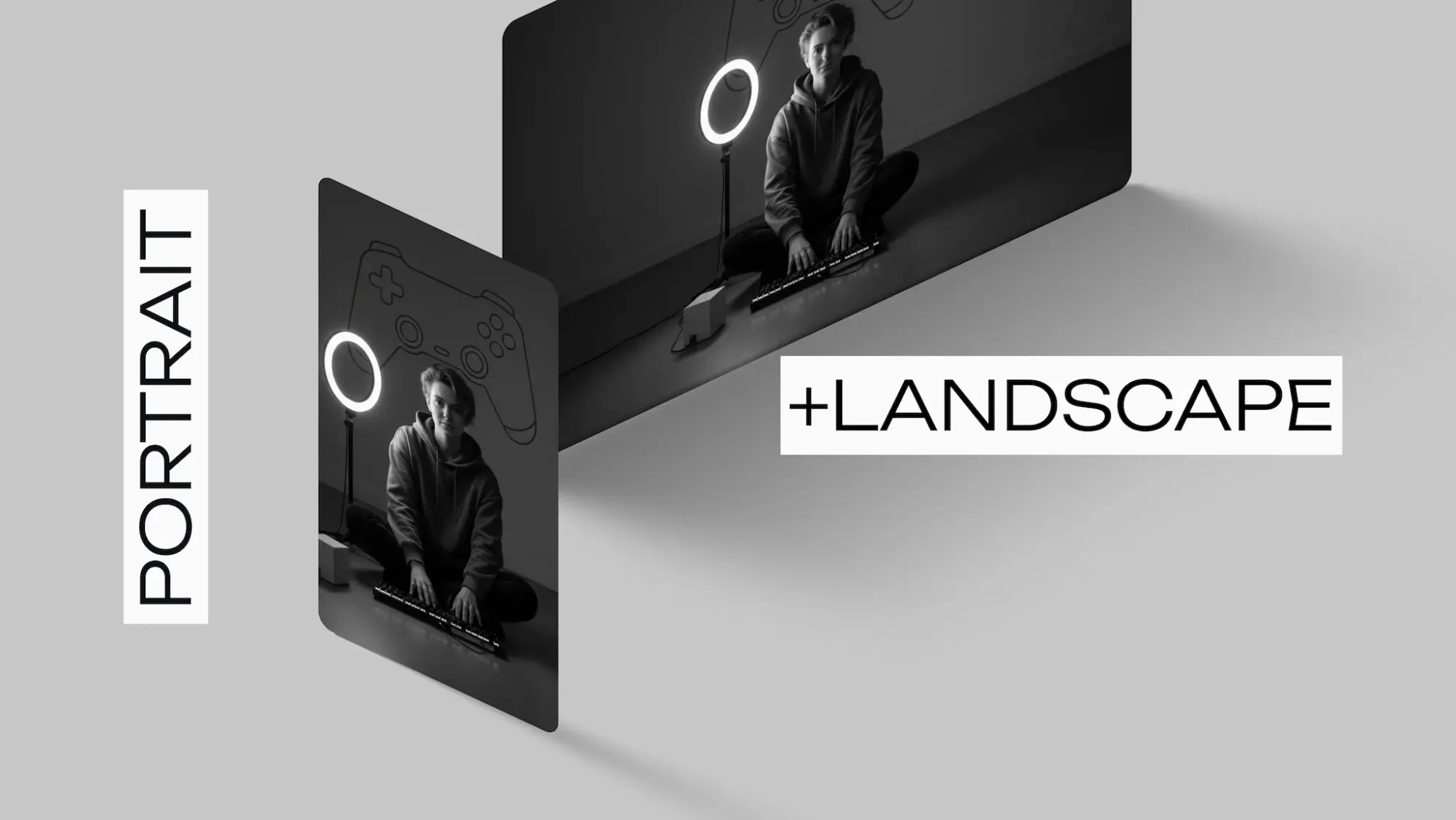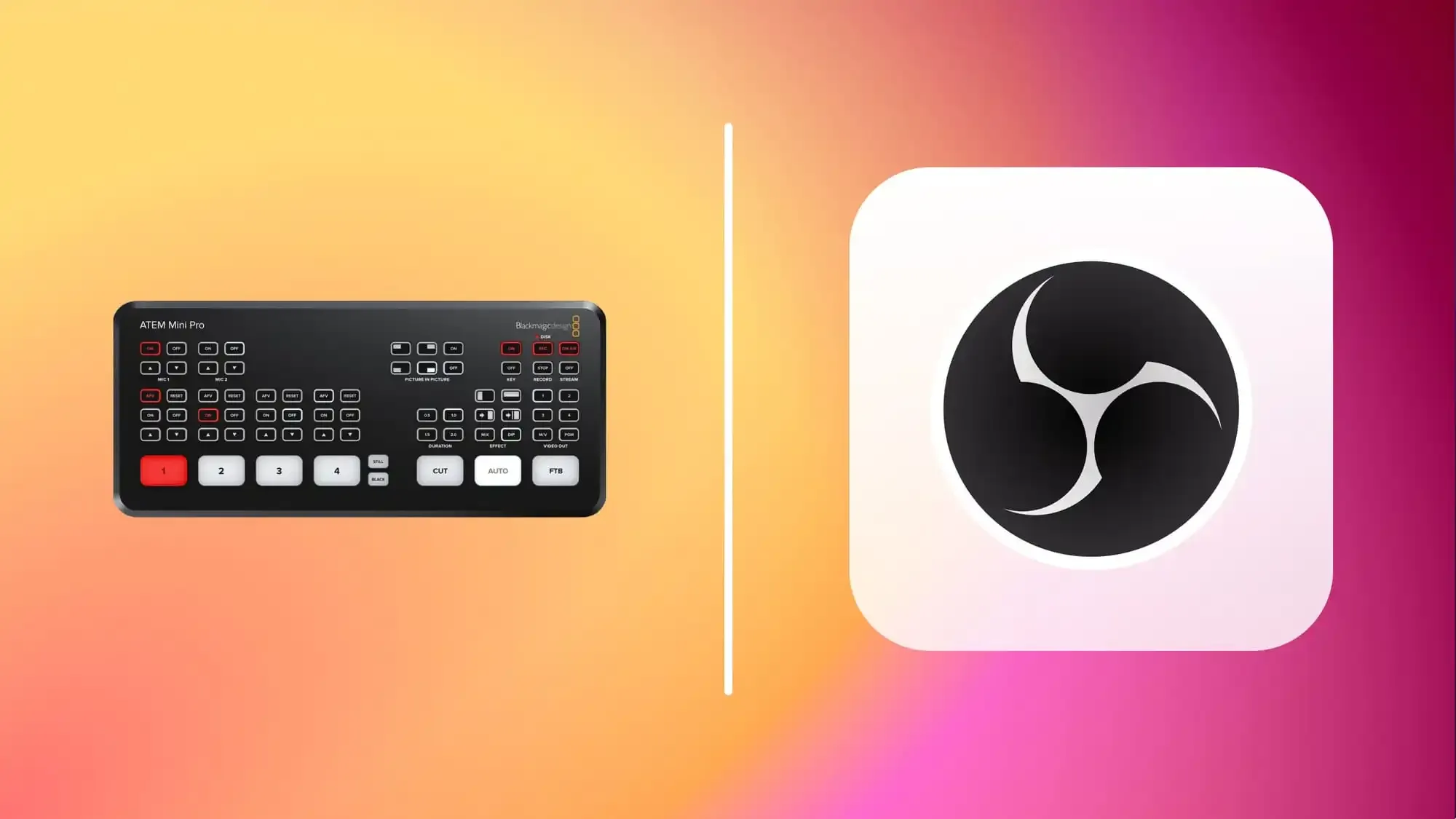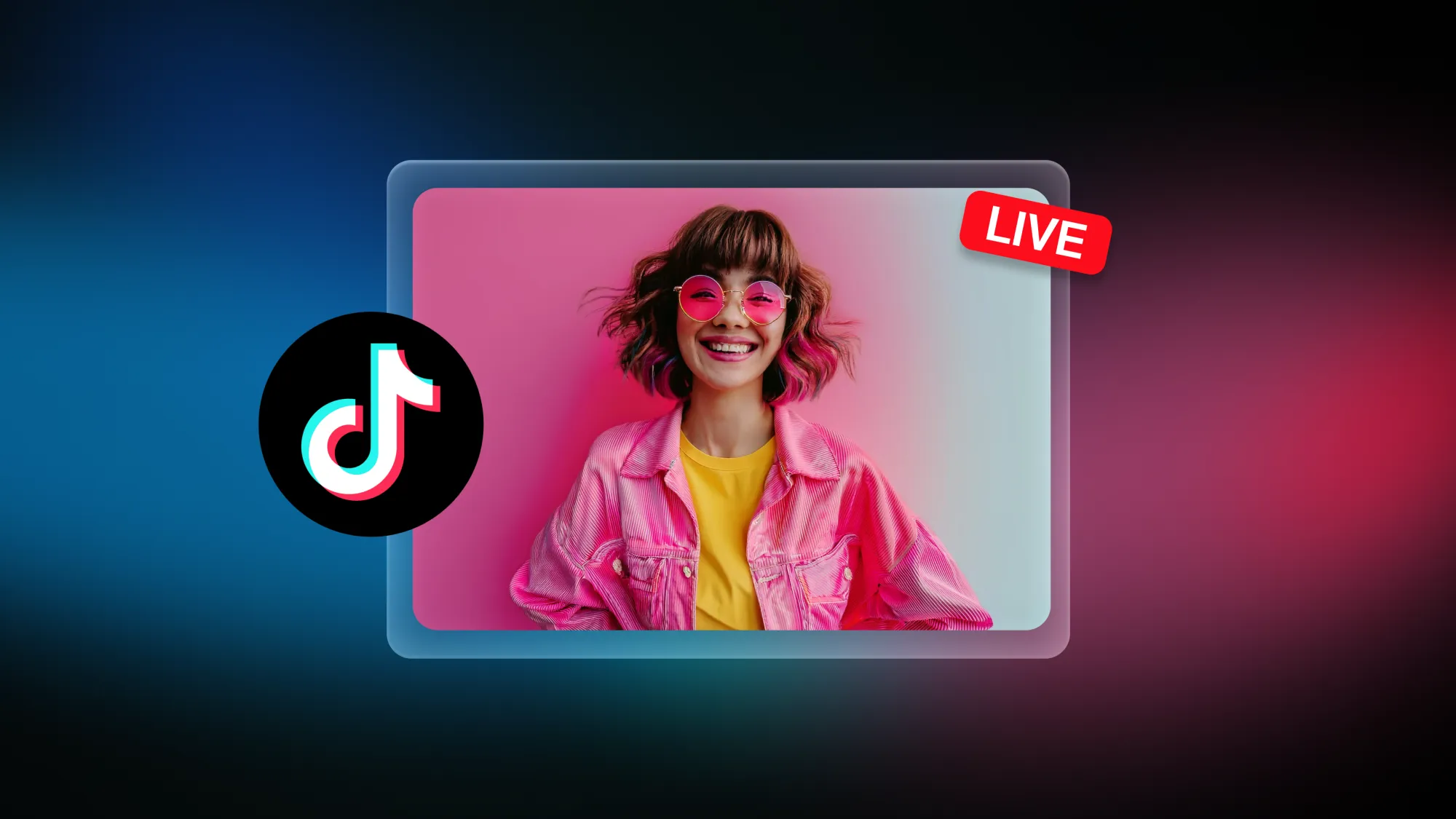Background music adds a little something to your live stream. It helps you set a tone for your broadcast and makes it more engaging for viewers. Before you start browsing through the playlists of your favorite artists to find the perfect track for a live stream, you should understand the legal requirements for using someone else’s music.
This guide to using music in live streams covers the legal requirements for background music and the best places to find royalty-free music for your live stream.
Why you need music in your live streams
Music ups the production value of your live stream. Viewers pay more attention to broadcasts with music, and you can set a tone for your stream with music. An upbeat pop song can create excitement, a slow piano solo can invoke sadness, and some EDM will make your viewers feel ready to party.
When added at the right moments, music adds another layer to your broadcast. Even if you or your guests are extremely engaging speakers, the right music will put your live stream over the edge.
How can you use music during a live broadcast?
- Play a jingle at the beginning of your stream to help cement your brand in viewers’ minds.
- Add music before your broadcast starts, to set a mood for the rest of your stream.
- Assign a “theme song” to guests who appear on your show.
Your live stream provides endless opportunities for adding music. You just have to make sure you add music you have the right to play. Copyright infringement can get your stream shut down and get you in real trouble.
What kind of music can you use?
When you want to add music to your live stream, you have three options:
- Music in the public domain
- Music that is royalty-free
- Original music
Music licensing explained
Many streamers mistakenly think that if they purchased a song or have access to it via a streaming subscription service, they have the right to play it on their streams. Purchasing a song gives you a license for personal use only; playing it on a live stream is considered public use. Therefore, even if you paid for the song, you still need permission to play it on your live stream.
1. Public domain
How do you know if a song is in the public domain, or if you have to pay a royalty to use it? Songs in the public domain are available for anyone and everyone to use whenever they want. Popular Christmas carols such as “Deck the Halls” and “Jingle Bells” are in the public domain.
In the United States, any musical work created before 1925 is automatically in the public domain.
2. Royalty-free and sync license
A royalty is a fee you pay one time for the right to use a song in your broadcast. It’s also called a sync license. When producers want to add songs to commercials, TV shows, movies or YouTube videos, they need a sync license. The license allows you, as a content creator, to “sync” the music to your video content. If the song is copyrighted and you don’t pay a royalty or get a sync license, you cannot play it on your live stream.
When you pay a royalty fee to purchase a song for use on your live stream, the original creator can place restrictions on its use. Some artists will allow you to use their songs for free as well, but they may still limit how you can use them or require you to credit them.
3. Original music, covers and remixes
Of course, you can play original music you’ve created on live streams. But what counts as “original?” A cover is a version of another song that doesn’t use any elements from the original. You can use covers you’ve created entirely yourself, but you still have to pay royalties to the owner of the original song. This type of license would be a mechanical or cover license.
A remix is a modified version of an existing song. If you download a song and edit it on your computer, you’ve created a remix, not a cover. To use a remix legally, you’ll have to negotiate directly with the copyright holder for licensing. If you create a remix or cover without permission from the copyright holder, it’s a bootleg copy, and it’s illegal.
How to determine copyrights
There are three ways to tell if a song you want to use on your live stream is copyrighted or not (if you’re in the U.S.):
- Look at the sheet music: If you happen to have sheet music for the song you want to play, the name of the copyright holder will be printed on the bottom of the first page.
- Check with organizations: You can search for copyrighted songs with organizations that have catalogs of registered songs. A quick search of your chosen song will let you know the copyright holder.
- General search: You can try to search for the song with the U.S. Copyright Office or the Harry Fox Agency. If those two options fail, then try a general web search.
Performing rights organizations
Performing rights organizations have catalogs of songs registered with copyrights. In the U.S., the organizations with searchable databases are:
- Broadcast Music, Inc. (BMI)
- SESAC
- American Society of Composers, Authors and Publishers (ASCAP)
- Global Music Rights
Artists can also copyright their songs internationally, not just in the U.S. To find a song’s author or copyright information worldwide, try searching for it on the WorldCat database. WorldCat helps you find items available in libraries around the world, and the advanced search function lets you search for a song or album and find its author.
Also, when it comes to international music, keep in mind that most countries in the world are party to the Berne Convention, an international agreement concerning copyrights. If an artist files a copyright in one country that recognizes the Berne Convention, that copyright is automatically valid in all the other countries that recognize the Convention. For example, if an artist created a song in Japan and copyrighted it in Japan, the copyright holds in the U.S. as well because both Japan and the U.S. are signatories on the Berne Convention.
Similar copyright rules exist for the following:
- Countries that recognize the Universal Copyright Convention
- Countries that recognize the Rome Convention
- Countries that are members of the World Trade Organization (WTO)
Restrictions by platforms
Even if you follow copyright law, you still must follow the rules of the platform you’re streaming on when you use music that isn’t yours. Some platforms have their own audio libraries that let you choose songs or create your own, royalty-free. If you choose a song from one of these audio libraries, always confirm that it’s really okay to use. If it’s not and you play it anyway, the copyright claim comes back on you, not the platform.
1. Twitch
On Twitch, you are only allowed to play music on your live stream if:
- The music is your property
- You have a license for the music
- It’s from the Twitch Music Library
DJ sessions, karaoke, playbacks and radio-style shows are not allowed on Twitch. If you don’t follow these rules, Twitch can silence your broadcast. You may also get notices of regulatory violations or DMCA copyright claims.
2. Facebook
You can only play music on a Facebook live stream if you have the license for it. If Facebook thinks you’re playing music on your broadcast that’s protected by a copyright, Facebook will mute your audio. If you do this repeatedly, Facebook can delete your videos.
To get around Facebook muting your broadcasts, you must have the license to the music you’re playing. If Facebook flags your videos with a copyright claim, you’ll have to appeal the claim and show the certificate proving you have rights to the music you’re playing. Facebook also has a custom sound collection that lets you create royalty-free music for your live streams.
3. YouTube
YouTube scans all live streams to determine if you’re using copyrighted content, including music. If YouTube notices copyrighted content in your stream, a placeholder will cover your live stream until you fix the issue. If you don’t fix it, YouTube can terminate your live stream.
You can only play music you have the license to on YouTube live streams. But even if you have the license, you must go through another step for YouTube to allow it. The owner of the music must add your channel to their allowlist through YouTube’s content matching system, ContentID. YouTube also has an Audio Library with royalty-free music for your live streams.
4. X (Twitter)
Like YouTube, X (Twitter) scans for copyrighted material in live broadcasts and will stop your broadcast if you’re a match for copyrighted content. If your broadcast is flagged, it will be disrupted and available as a replay. X (Twitter) gives you a chance to dispute the claim and present your license or to argue that it’s fair use material. Note that even if X (Twitter) restores your broadcast, the copyright holder can still file a formal takedown notice.
Where to get royalty-free music for your streams
Music restrictions on live streaming platforms are strict, but there are ways to get great music for your live streams while following the rules.
Restream background music
Did you know you can add royalty-free, copyright-free and license-free music to your live stream using Restream? With our background music feature, you can add AI-generated tracks to your stream that continue indefinitely — so no switching out the music in the middle of your live session.
🥁 We're excited to announce Background Music for Restream Studio! 🎶
— Restream 🇺🇦 (@Restreamio) May 25, 2021
Add endless copyright-free tunes in just one click, from lo-fi hip-hop to energetic pop.
Groove with your viewers and enjoy this feature for free! 🎉
Try it today 👉 https://t.co/waynIKYzeK pic.twitter.com/ZabR0FUpPr
Choose from among several genres, including Chill, Hip Hop, Ambient, Pop, Rock & Metal, and Classical. Avoid copyright claims and set the perfect vibe for your live stream with our easy-to-use background music feature.
YouTube Audio Library
YouTube’s Audio Library is free to use and has a large collection of songs that’s always expanding. With so many tracks, the YouTube Audio Library is the perfect starting place for new streamers on a budget who want good music. You can use the music in any of your streams, as long as you follow YouTube’s rules. If you violate any of the rules, you’re in breach of the copyright. You can only use the music outside of the YouTube platform if you contact the artist first.
SoundCloud
SoundCloud is a huge music streaming website where more than 18 million artists upload their work. SoundCloud has both royalty-free and copyrighted music, and you can limit your search to royalty-free tracks only. Before using any music from SoundCloud on your live stream, check the individual creator’s guidelines on how to use their music (if you should credit them, if you’re allowed to remix, etc.).
Soundstripe
Soundstripe is a popular royalty-free music service among live streamers. You can’t use their music for free, however. You pay $10 per month for access to the Soundstripe music library, which is updated with new tracks weekly. If you want sound effects and music, you’ll pay $20 per month.
Epidemic Sound
Epidemic Sound is the most popular choice for royalty-free music, covering YouTube, Facebook, Instagram and Twitch. There are over 35,000 songs and 90,000 sound effects to choose from. The Personal plan, at only $9 per month, lets you use the music on your streams with unlimited followers and views, and with monetized channels or streams.
Pretzel Rocks
With Pretzel Rocks, you can find DMCA-safe music for your monetized live streams. They also claim you can use their tracks on Twitch and YouTube without facing copyright claims. Pretzel Rocks is free to use, but you have to give credit to the artist in your live stream chat. You can also pay $14.99 per month for the Premium plan to avoid chat attribution, and 70% of the fees you pay go to the artists.
StreamBeats
StreamBeats is a website where you can download copyright-free music in various genres for streaming on YouTube and Twitch. StreamBeats started as a YouTube playlist created by musician Harris Heller, as a way to help streamers find good music and avoid DMCA claims. The YouTube channel has upgraded to streambeats.com, where you can find a variety of playlists for use as background music in your streams.
Amazon Music
Twitch streamers who are Twitch Prime members or Amazon Music Unlimited subscribers can use tracks from Amazon Music in their live streams on Twitch. The music is ad-free and the extension is DMCA-approved, so streamers can play it without fear of getting flagged for using copyrighted material.
Bass Rebels Spotify playlist
Spotify user Bass Rebels has created a playlist of copyright-free tracks that gamers can use on live streams without getting DMCA takedowns or muted streams. You have a free license to use the music if you are an independent creator and monetize videos on YouTube, Facebook, X (Twitter) and Instagram. You do have to credit Bass Rebels in your description.
Free Music Archive
The Free Music Archive is a database of royalty-free music you can listen to and download for free. You have to follow the requirements to use the tracks in your live stream (attributing the creator, not remixing, etc.). The Free Music Archive was founded by an independent freeform radio station, and the music comes from artist collectives, other freeform radio stations, netlabels and performance spaces.
NoiseTrade
NoiseTrade is an online audio direct-to-fan distribution platform. Creators upload their original work for users to download for free, without any digital rights management. You must have an email address and zip code to access the MP3 files. To thank the artists for sharing their work freely, you can leave a tip for them on NoiseTrade or share their music on social media so it gets more exposure.
FAQs
Am I allowed to play any music I want on my stream?
No. Your live stream is public, so you can only play music that you own, have the license to, or that is in the public domain.
Can I get banned on Twitch for playing music?
Yes. You can receive a 24-hour ban on your Twitch channel if the person who owns the music that you played files a DMCA takedown request against you.
How do I avoid copyright violations on Facebook Live?
You must have the license to the music you’re playing on Facebook if you want to avoid music-related copyright claims. If Facebook mistakenly mutes your stream, you can appeal.
Can I use copyrighted music on YouTube if I don’t monetize?
If your YouTube video is public, it must adhere to all copyright laws and rules concerning music. You still need the copyright holder’s permission, even if you don’t monetize the video.
Wrap-up
There’s no doubt that adding music to your live stream will enhance it, no matter what genre you’re streaming in. It’s possible to add high-quality music to your stream too, if you follow the rules and search for music that’s legal to use. With our above tips, you’ll (legally) find awesome music for your live stream in no time.

